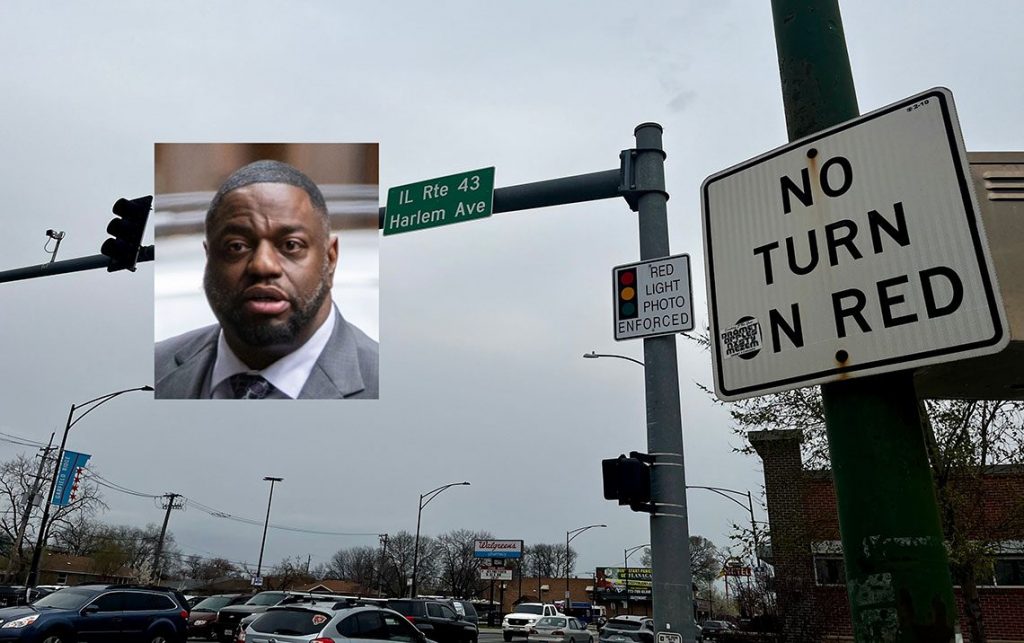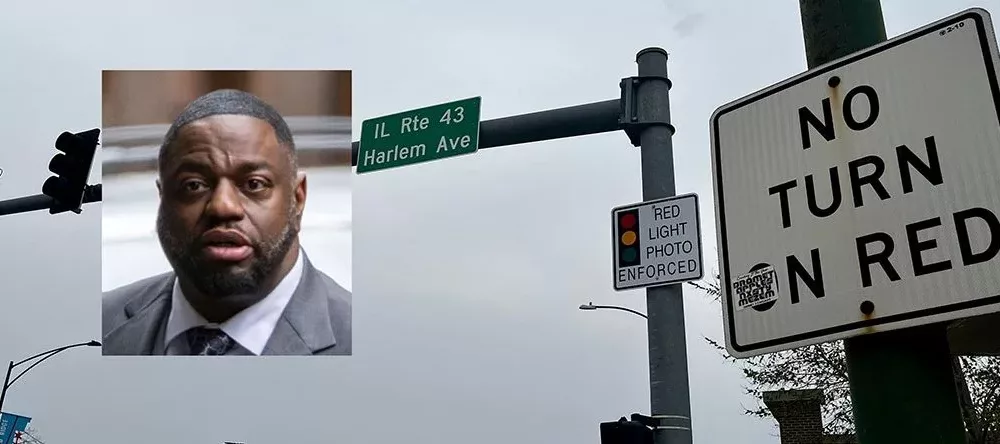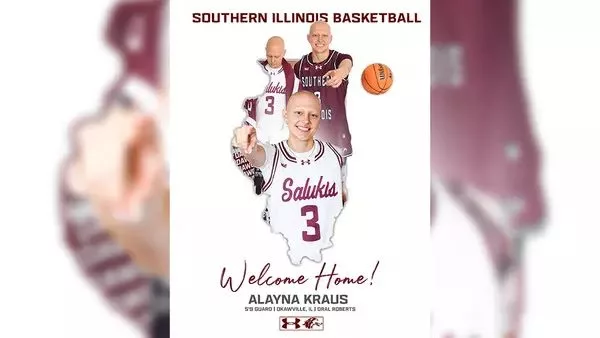
By HANNAH MEISEL
Capitol News Illinois
hmeisel@capitolnewsillinois.com
CHICAGO — As prosecutors gave their closing arguments Monday in the trial of state Sen. Emil Jones III, they cast doubt on Jones’ testimony last week that red-light camera entrepreneur Omar Maani made him “uncomfortable” when he hinted at a bribe in the summer of 2019, asking the jury why — if that was true — did he keep meeting Maani for dinner and answering his calls and texts?
Maani, who’d been acting as an FBI cooperating witness for 1 ½ years by the time he and Jones kicked off what would eventually be a series of three dinners that summer, “littered” their meetings with words that should’ve been “screaming red flags,” Assistant U.S. Attorney Tiffany Ardam said.
She pointed to the times when Maani told Jones he wanted to get “creative” in how he’d pay a potential campaign contribution or otherwise “conceal” it from public reporting requirements — lest it look “goofy” or “funky” to either the media or other leaders inside his company, SafeSpeed.
“These words are giant red flags. These words should’ve had the defendant running for the hills,” Ardam said. “Instead, the defendant does the opposite.”
Jones, a Chicago Democrat, is accused of agreeing to accept $5,000 from Maani in exchange for changing legislation requiring a study of the red-light camera industry so it wouldn’t have any bearing on SafeSpeed’s extremely profitable business model. Jones also asked Maani to arrange for SafeSpeed to hire his former intern, which the feds allege was Jones furthering the bribe.
But in his closing arguments, Jones’ attorney Vic Henderson repeatedly emphasized that Maani never gave Jones the $5,000. He reminded the jury of the times during their secretly recorded dinners when Jones steered the conversation from the campaign contribution to the job for his intern. Jones last week testified that he was actively trying to avoid taking Maani’s money.
“Why would somebody on the take say, ‘Don’t give me any money?’” Henderson asked the jury. “Why would somebody who doesn’t know their calls are being listened to say, ‘Don’t give me any money?’ Why? Because he’s not on the take.”
But prosecutors argue it doesn’t matter that Maani never paid Jones, nor does it matter that the senator never amended his legislation in the way that Maani asked for.
“He doesn’t need to do it,” Assistant U.S. Attorney Prashant Kolluri told jurors during the government’s rebuttal arguments Monday afternoon. “The agreement is the crime.”
Henderson, though, reminded the jury that the only reason Jones was invited to multiple dinners with Maani was because the FBI directed it, accusing Maani of trying to “set him (Jones) up.” Since he began cooperating with the government in January 2018, Maani had secretly recorded “dozens and dozens and dozens” of others caught up in the feds’ public corruption probe.
The FBI also gave him $75,000, which he paid out in installments to then-state Sen. Martin Sandoval, D-Chicago, who’d been blocking Jones’ bill in Springfield as chair of the Senate Transportation committee. Maani handed over a stack of cash to Sandoval after Jones left a June 2019 dinner between the three, at which Sandoval had hinted at receiving benefits from Maani and told Jones that Maani “wants to be your friend.”
“If he was as dirty as they say he is, why not just give him an envelope of cash?” Henderson said of Jones. “Instead, what they did — your government, our government — they worked with Omar to get the senator to take a bribe. …He doesn’t go to Omar; they send Omar to him.”
Maani, who admitted to the jury that he’d spent nearly his entire adult life paying bribes to get ahead in business, was eventually charged with one count of bribery in 2020 but after his three-year deferred prosecution agreement ended, the feds dropped the charge. Maani’s cooperation resulted in a handful of guilty pleas, including from Sandoval before he died in late 2020.
Henderson attempted to cast doubt on Maani’s testimony by bringing up his admission that he’d once forged one of his mother’s checks in service of a bribe.
“This is a guy who literally stole from his own mother,” he said. “Literally.”
Jury gets the case Monday afternoon
The jury was released to deliberate shortly after 2:30 p.m. and left the Dirksen Federal Courthouse about two hours later, having sent two notes to the judge asking for additional copies of transcripts for the secret recordings.
Jurors have already given the trial more time than the originally expected two-week timeframe, owing to both court delays and Jones’ surprise decision last week to testify in his own defense. He’s the first sitting state official in 20 years to do so.
But taking the witness stand opened Jones up to grueling cross-examination from Ardam, and both she and Kolluri on Monday accused the senator of lying in his testimony.
“When Mr. Jones was on the stand, he tried to have us believe that some pretty basic words in the English language don’t mean what we know they mean,” Kolluri said.
Kolluri pointed to Jones’ interpretation of when he relented to Maani’s insistence that he come up with a “goal” for him to give to the senator’s next upcoming fundraiser while the pair dined at a downtown Chicago steakhouse in July 2019.
“I don’t give folks numbers,” Jones said. “Just whatever you can raise for me, that’d be nice. I’m not greedy.”
But after Maani pressed him, Jones came up with $5,000.
“If you can raise me five grand, that’d be good,” the senator said between bites of his meal.
Jones last week said that he meant Maani could give him anything “between zero and $5,000,” which Kolluri scoffed at Monday.
The prosecutor also expressed skepticism at Jones’ explanations of why he’d repeatedly said things like “I get it,” “I feel you,” “you’re good” and “yeah” when responding to the same suggestions from Maani he said made him uncomfortable. According to Jones, “It’s just how I speak.”
“I wasn’t agreeing with anything he said, I was just hearing him out,” Kolluri said sarcastically, paraphrasing Jones’ testimony.
Kolluri pointed to Maani’s and Jones’ Aug. 8, 2019, dinner during which Jones suggested that instead of a campaign contribution, Maani could instead sponsor a job fair in his district.
After Maani asked whether that would have to be reported on state campaign finance reports, Jones said no; Maani could instead pay for food or “giveaways” at the fair. On the witness stand last week, the senator explained that anything under $150 doesn’t have to be itemized on his quarterly campaign finance reports and said he’d imagined Maani could pay for pizzas or a case of bottled water.
“Okay, that’s the most important thing. I just want to, uh, avoid at all costs,” Maani said of having his expenditures be publicly reported. “You know what I’m saying?”
“Yeah, yeah,” Jones said.
After Maani told Jones it was his “cardinal rule” that he had to “just kind of conceal” the contribution, Jones responded with, “I feel you.”
“Six years later, on the stand — after he’s been charged w bribery — Mr. Jones testified those words meant he heard Omar Maani but wasn’t agreeing,” Kolluri said. “Come on, in what world does that make sense?”
Prosecutors also hammered on what turned out to be a no-work job for Jones’ former intern, Christopher Katz. Earlier this month, Maani testified that Jones’ request that he hire Katz directly after Jones came up with the $5,000 figure at their July 2019 dinner caught him off guard.
“But most importantly, I have an intern working in my office,” Jones told Maani. “And I’m trying to find him another job, another part-time job.”
Jones testified that he’d made the request because he’d seen dozens of college students like Katz working for SafeSpeed when he took a tour of the company’s offices a few months prior. Katz actually hadn’t worked for Jones for more than a year at that point but the two were in touch about whether Jones could help him find employment.
But by their next dinner, Maani was expressing doubt to Jones that he’d be able to get Katz hired at SafeSpeed without attracting questions from his colleagues. Instead, Maani floated hiring Katz to work directly for him on a research project.
A few days later, Maani called Jones to tell him that he didn’t have much work for Maani but would put him on his payroll anyway. Jones raised no strong objections, only telling Maani, “Yeah, but um, let’s make sure we find him some work.”
“The defendant knew this was not a normal job,” Ardam said Monday, pointing out Jones had told Katz he “got the job” even before he’d sent Katz’s resume to Maani. “What that means is the defendant knew this was part of the bribe.”
Although Maani and Jones agreed that $15 per hour for Katz was fair, Jones denied knowing what Katz was being paid when a pair of FBI agents came knocking at his door on Sept. 24, 2019. It’s one of three lies the feds allege Jones told about the purported bribery scheme in that interview.
The feds also say Jones lied about his promise to “protect” Maani and SafeSpeed from then-state Rep. David McSweeney, R-Barrington Hills, a friend of Jones who was also in favor of legislation to study red-light cameras but only because he wanted to see the industry abolished in Illinois.
Prosecutors also accused Jones of falsely telling FBI agents that he and Maani never discussed how a campaign contribution could be made without having it publicly reported.
Henderson, however, pointed out what Jones already testified to: He was nervous when the FBI agents were in his living room. The senator even flubbed the name of SafeSpeed’s CEO, Nikki Zollar, confusing it with former South Carolina Gov. Nikki Haley.
“Is he supposed to remember every single solitary word he said in a dinner 30 days ago, 60 days ago, 90 days ago?” Henderson asked the jury. “I guess according to the government, yes.”
But Kolluri encouraged jurors to listen back to the interview, which the agents secretly taped, as well as the recordings from each of the three dinners Jones shared with Maani.
“Sen. Jones put up his power for sale, as we saw on those recordings,” he said. “It was crystal clear.”
Capitol News Illinois is a nonprofit, nonpartisan news service that distributes state government coverage to hundreds of news outlets statewide. It is funded primarily by the Illinois Press Foundation and the Robert R. McCormick Foundation.




